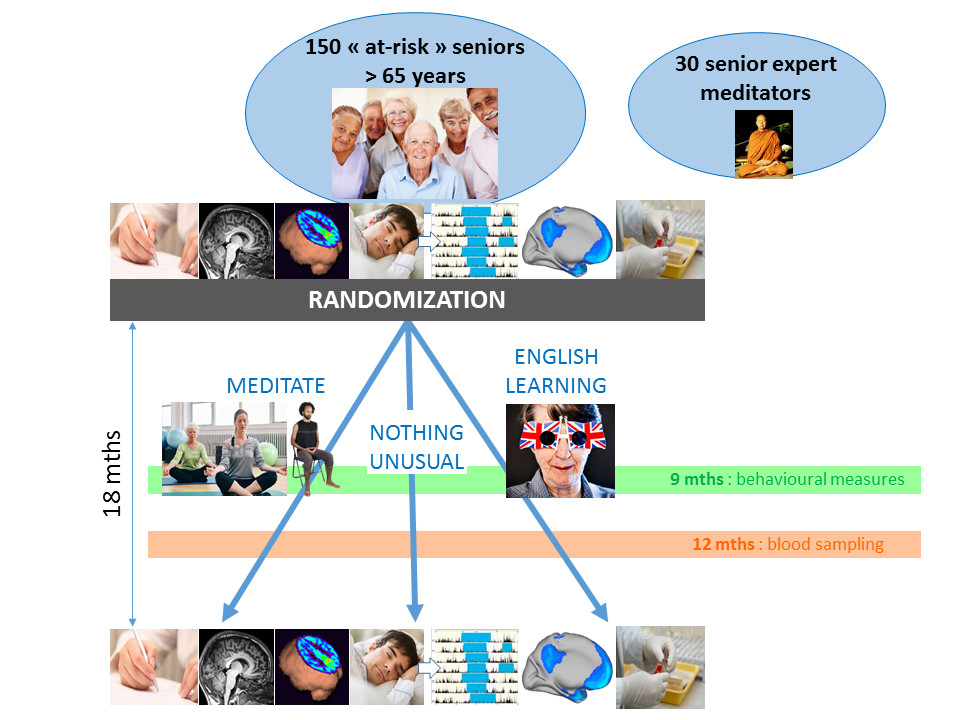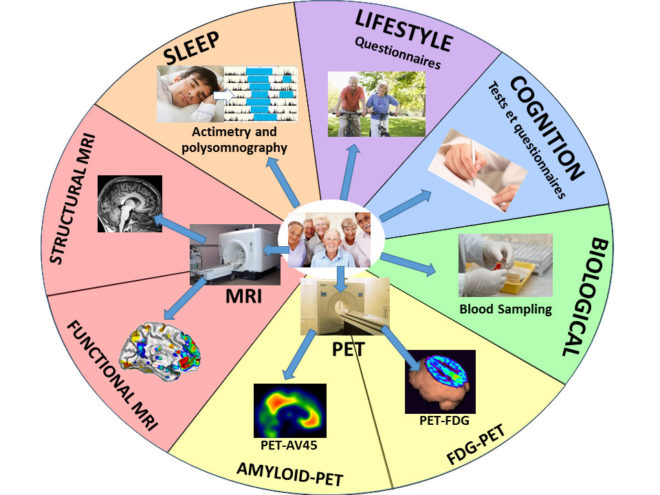Meditation
Mental training for stress reduction and emotion regulation through meditation practice appears as a promising alternative to improve mental health and well-being in ageing populations and reduce risks for Alzheimer’s disease and other age-related conditions. Our works on meditation include cross-sectional investigations in older expert meditators, and longitudinal non-pharmacological clinical trials including meditation training in ageing populations.
Studies in expert meditators have evidenced brain activity changes specifically associated with different meditation practices notably during emotional tasks which could serve as neural signatures of meditation. Over and above modifications during actual practice, structural and functional brain changes have been found in expert meditators compared to non-practitioners. The main objectives of our studies are to investigate the potential of meditation to promote mental health and wellbeing in the ageing population and prevent AD.
For this purpose:
- We study senior expert meditators to highlight the most significant effects of meditation on adverse factors of ageing and AD biomarkers (comparing the senior expert meditators to non-meditators) and to further our understanding of the brain signatures of different meditation practices (comparing expert meditator brain activity in different meditation states).
- We conduct an 18-month intervention study in older adults to assess the effects of a meditation versus English learning programme on behavioural measures of cognition and wellbeing and biomarkers of ageing and AD (including sleep measures, blood samples and neuroimaging).

30 senior expert meditators and 150 cognitively normal elderly with risk factors for AD are included in this study. They have detailed examinations of cognitive functions, sleep, lifestyle, biological sample and neuroimaging scans including structural and functional MRI (3D T1, T2, Flair, DKI/DTI, high resolution hippocampal T2, ASL, SWI, resting-state and task-related fMRI) and FDG and amyloid PET imaging. The cognitively normal elderly are then randomly distributed in 3 groups (18-month meditation, 18-month English learning, passive control) and all examinations are repeated at the end of the 18-month follow-up period.

In a pilot study including 6 senior expert meditators and 67 non-meditators elderly controls, we showed reduced age-associated brain structural and functional decline in the meditators compared to the controls. More specifically, the meditators showed higher volume and glucose metabolism, measured with structural MRI and FDG-PET respectively, in regions particularly sensitive to age including frontal and temporo-parietal areas.